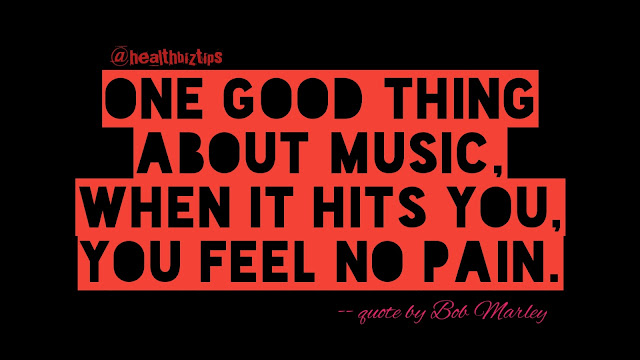Can Music Kill Me?
Can Music Kill Me?
It is a common idea that listening to extreme music like heavy metal, rock, and rap can lead to anger and violence.
 |
| Can Music Kill Me? |
@healthbiztips by Arlene Gentallan
Take the case of Raymond Belknap (18 years old) and James Vance (20 years old) who, in 1985, shot themselves. A terrible action which the surviving disfigured James and his mother claimed was an influence of the subliminal messages hidden in the heavy metal band Judas Priest's Stained Class album.
Here's another one. In 1985, Daniel McCollum (19 years old) killed himself. A tragic incident blamed to Ozzy Osbourne's heavy metal song entitled "Suicide Solutions".
By the way, these are not the only cases in which extreme music was blamed.
These speaks of unimaginable terror and grief.
These cases in which music supposedly influences youth to take their own lives was treated seriously by survivors and their family. They filed lawsuits against the respective bands... Which they end up loosing. Investigations reveals childhood troubles, history of violence, and internal family conflicts... Which could have made these teenagers vulnerable. Even so, the tendency for violence was already in them even before they idolized extreme songs.
Extreme music do not cause anger.
In fact, research shows the exact opposite holds true: Studies reveal that listening to extreme music genre has a remarkably positive impact to the mental health of it's listeners.
Engaging in extreme music is a form of outlet to channel negative emotions into positive constructive ones.
If so, shouldn't these suicide attempts been prevented by listening to extreme music?
Is suicide the positive constructive outcome heavy metal music has to offer?
Extreme music attracts certain kinds of people. In fact, genres of this music has huge followings.
The Killer Song
If these doesn't spook you enough, then this one might. Can you conceive a song so powerful that it can urge a great number of people across the globe to end their lives? Ever heard "Gloomy Sunday"?
The song "Gloomy Sunday" by Rezső Seress was nicknamed "The Hungarian Suicide Song" because of it's bloody legacy. It's a song about a person who decided to commit suicide. In it's wake, it inspired many people to kill themselves, including it's composer.
Even so, external forces are at work. The song's publication period is a troublesome era due to the Great Depression. It's a challenging and terrifying period in history to live in. The song might have offered a bold and horrifying influence to end their longings and sufferings. It's a song that laid our suicide as a doable option.
Compounding the problem is the mental health issues people suffer like depression which makes them particularly vulnerable to commit suicide. In 2018, the world has seen 300 million people suffer from depression according to the World Health Organization (WHO).
As for those songs that contains subliminal messages, it remains a hotly debated and controversial topic. The human mind, after all, is vulnerable to external influences. But, music can be just one of the many reasons why, but can not be pointed as the real murderer.
Music isn't just a beat. Music has powerful effect on our psychology. The kind of music you like may ultimately reflect what's going on in your head.
Resources:
MLA Sharman, Leah and Genevieve A Dingle. “Extreme Metal Music and Anger Processing” Frontiers in human neuroscience vol. 9 272. 21 May. 2015, doi:10.3389/fnhum.2015.00272








Comments
Post a Comment